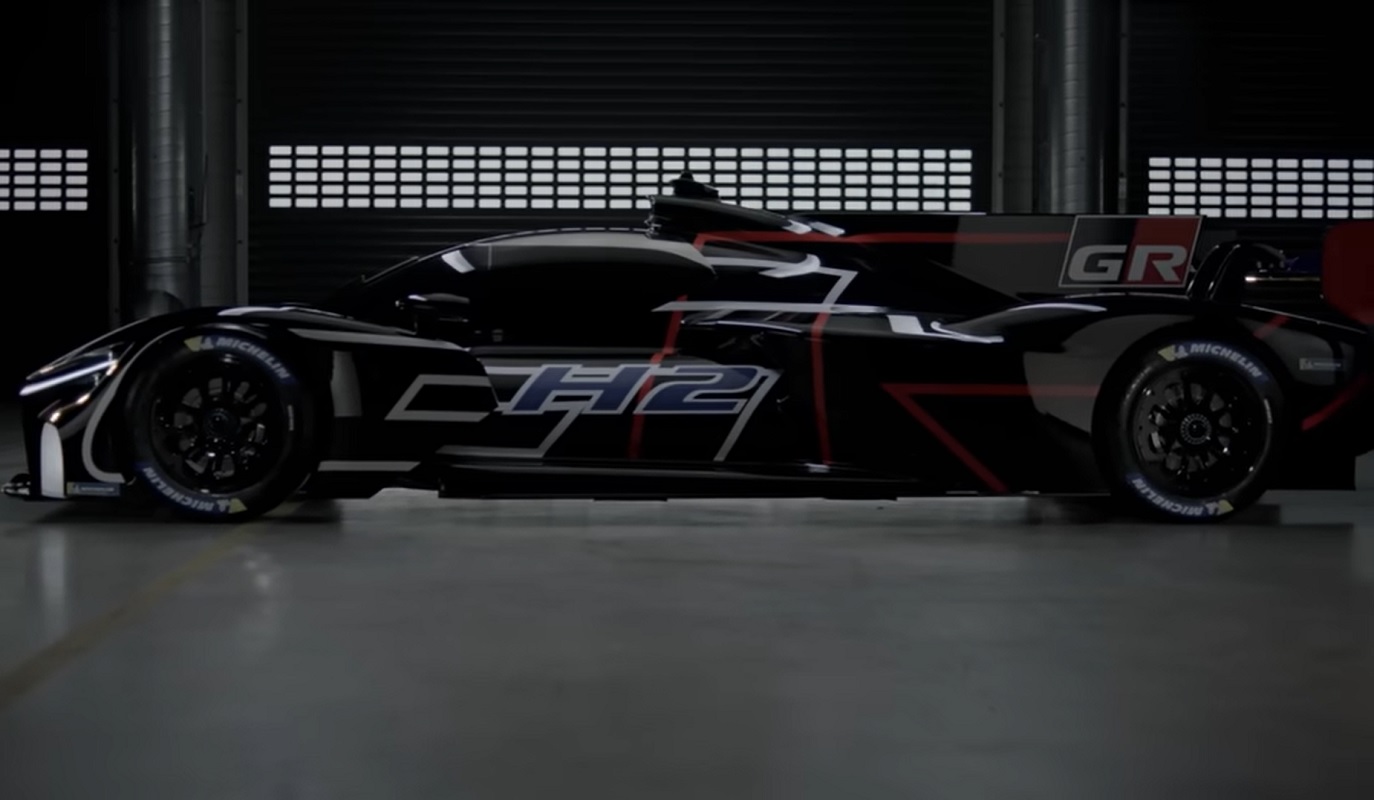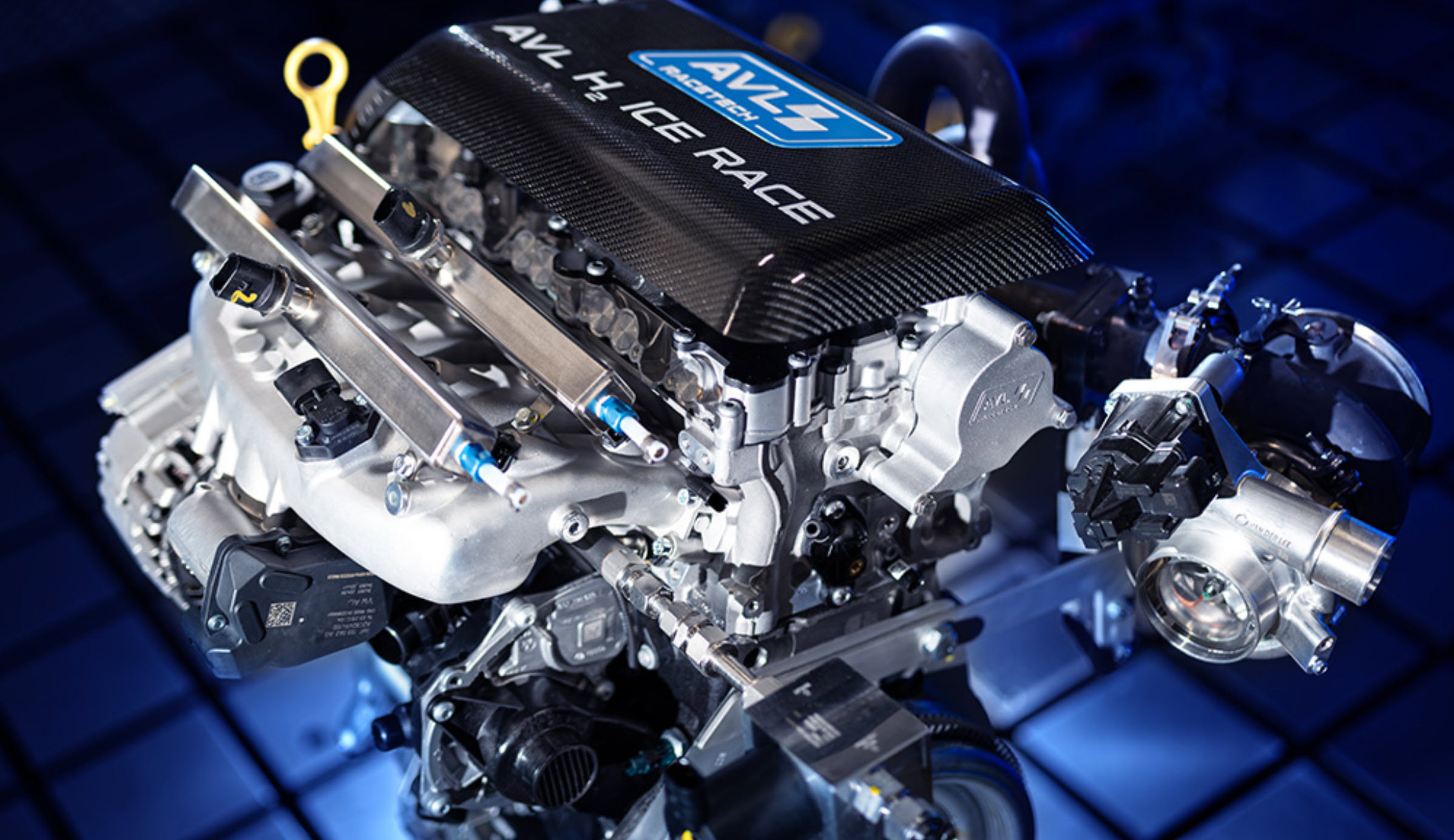
The Evolution of Hydrogen Combustion Engines in Motorsports
February 1, 2024Embracing Hydrogen Combustion Engines
As we progress towards a greener future, hydrogen combustion engines stand out as potential disruptors in the realm of motorsport technology. Companies like AVL RACETECH and Toyota are at the forefront of this innovation, focusing on the development of advanced H2 internal combustion engines specifically tailored for racing applications.
Recently, Toyota Motor Corporation unveiled its latest prototype, the GR H2 Racing Concept, at the Le Mans 24 Hours press conference. This innovative vehicle highlights the potential of hydrogen technology in motorsport. Toyota’s vision transcends the boundaries of competitive racing. They are committed to promoting hydrogen technology to help create a carbon-neutral society. The GR H2 Racing Concept is a testament to this commitment, featuring both a hydrogen engine and a hybrid system.

 Taking a significant step towards sustainable racing, the Automobile Club de l’Ouest (ACO) has decided to allow hydrogen-engine vehicles to compete alongside fuel cell electric vehicles in a dedicated hydrogen category. This decision has paved the way for new opportunities in sustainable racing. Seizing this opportunity, Toyota has been competing in Japan’s Super Taikyu endurance racing series with a hydrogen-engine Corolla race car since 2021.
Taking a significant step towards sustainable racing, the Automobile Club de l’Ouest (ACO) has decided to allow hydrogen-engine vehicles to compete alongside fuel cell electric vehicles in a dedicated hydrogen category. This decision has paved the way for new opportunities in sustainable racing. Seizing this opportunity, Toyota has been competing in Japan’s Super Taikyu endurance racing series with a hydrogen-engine Corolla race car since 2021.
AVL RACETECH’s Revolutionary Hydrogen-Fueled Engine
AVL RACETECH‘s hydrogen-fuelled race engine is breaking performance barriers and setting the stage for the advent of hydrogen-powered motorsport. The basic technology of a gasoline engine and a hydrogen combustion engine is remarkably similar, allowing for a smoother transition for manufacturers and drivers alike.
Hydrogen combustion engines play a pivotal role in the decarbonization plans of the auto industry. They provide a carbon emission-free alternative suitable for a wide range of vehicles, from race cars to cement trucks. But their importance extends beyond sustainability; they also help maintain the tradition of sound in racing.
The Significance of Big Sound in Racing
The excitement of motorsport is not only about speed and competition; it’s the sensory experience that genuinely captivates fans. Central to this is the powerful sound produced by racing engines, often referred to as the ‘big sound.’ It’s an integral part of the racing experience, and AVL RACETECH understands this.
For a majority of fans, the high decibel levels are not merely incidental. Instead, they form an integral part of the thrilling spectacle that is car racing. Interestingly, the specific engine sounds that a fan prefers can influence their perception of its loudness, highlighting the psychological nature of auditory perception.
Furthermore, those with more racing experience might be able to glean more information from the engine sounds than someone less familiar with the sport. This suggests that for some enthusiasts, the auditory elements of a race provide additional insights into the action unfolding on the track
The ‘big sound’ of racing is more than just a background noise to the action on the track. It amplifies the excitement, creating an atmosphere that electrifies spectators and drivers alike. It’s a unique symphony of power and performance that resonates with the raw energy of the race.

Image Credit: https://www.avlracetech.com/
What Distinguishes AVL RACETECH’s hydrogen-fueled race engine from a Gas Engine
Unlike traditional hydrogen engines, which often operate with a high amount of excess air resulting in diminished performance, AVL RACETECH’s model employs a slight lean-burn. This innovative approach allows the engine to generate an impressive output of 150 kW per liter, equaling the performance of contemporary near-production racing classes.
A cornerstone of this high performance is the water injection process. By introducing additional water into the engine’s intake air, boost pressure is increased. Further, the evaporation of this injected water creates a cooling effect within the combustion chamber, contributing to optimal performance. To manage the intricate behavior of the system, encompassing air, fuel, and exhaust gas flows, AVL RACETECH applies its proven simulation models and 3D flow calculations. This guarantees that the engine operates within mechanical boundaries and meets rigorous motorsport safety standards.
Distinctive features set the hydrogen race engine apart from a conventional gasoline engine. It utilizes a medium-pressure hydrogen supply, necessitating a metallic manifold and a pressurized hydrogen rail system. To offset the dry nature of hydrogen, water injection is employed for lubricating the hydrogen injectors. The engine also incorporates sizable charge air coolers to accommodate the large volumes of air flowing through it. Specialized ignition systems are installed to prevent unintended inflammations, further distinguishing this hydrogen-powered engine from its gasoline counterparts.
a medium-pressure hydrogen supply, necessitating a metallic manifold and a pressurized hydrogen rail system. To offset the dry nature of hydrogen, water injection is employed for lubricating the hydrogen injectors. The engine also incorporates sizable charge air coolers to accommodate the large volumes of air flowing through it. Specialized ignition systems are installed to prevent unintended inflammations, further distinguishing this hydrogen-powered engine from its gasoline counterparts.
In summary, the future of racing technology is on the cusp of a significant transformation with the advent of hydrogen combustion engines. The 24 Hours of Le Mans, one of the most prestigious events in motorsports, has adjusted its initial plans to introduce a hydrogen class from 2026 to 2027, recognizing the latter as a more realistic timeline. This decision underscores the complex challenges and exciting potential that lies in the path towards hydrogen racing. Furthermore, the big sounds emblematic of racing will be preserved, adding to the allure of this new era.
Hydrogen combustion engines, while offering a greener alternative, do not compromise on the thrill and excitement that make motorsports so captivating. It’s an exciting time for the racing industry, with Toyota and AVL leading the way. The future indeed looks promising for hydrogen racing, signifying a major step towards sustainable motorsports.



 HFN News is your leading source for fresh hydrogen and renewable energy updates. Amid the fast-paced growth of hydrogen companies, we provide top-notch news and insights about this exciting sector. Our coverage spans from hydrogen cars to global sustainable initiatives, and we highlight the latest in green jobs and developing hydrogen hubs. We invite you to share your local hydrogen news and explore today’s renewable energy job listings on our site. Thanks for choosing HFN News as your trusted guide to the hydrogen and renewable energy world!
HFN News is your leading source for fresh hydrogen and renewable energy updates. Amid the fast-paced growth of hydrogen companies, we provide top-notch news and insights about this exciting sector. Our coverage spans from hydrogen cars to global sustainable initiatives, and we highlight the latest in green jobs and developing hydrogen hubs. We invite you to share your local hydrogen news and explore today’s renewable energy job listings on our site. Thanks for choosing HFN News as your trusted guide to the hydrogen and renewable energy world!